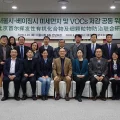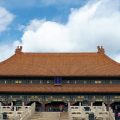East Asian Cities gathered at the Seoul International Forum on Air Quality Improvement
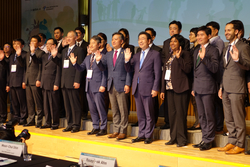
The Seoul International Forum on Air Quality Improvement 2019 kicked off on the morning of 22 May, gathering officials from 35 cities in China, Japan, Mongolia, Vietnam, Singapore, and Korea, to explore solutions for fine dust and other forms of air pollution.
The Seoul Metropolitan Government has been annually hosting the international forum since 2010, as a platform for local governments from Northeast Asian countries to discuss and seek joint countermeasures for the worsening air pollution in the region.
“The problem of air pollution is not just a matter of one city, but a common problem of the world,” said Seoul Mayor Park Won-soon as he announced the opening of the 2-day forum.
“In concerning the future of our children, we hope that the Forum will provide practical solutions based on in-depth discussions among the participating cities, and strengthen the cooperation between them.”
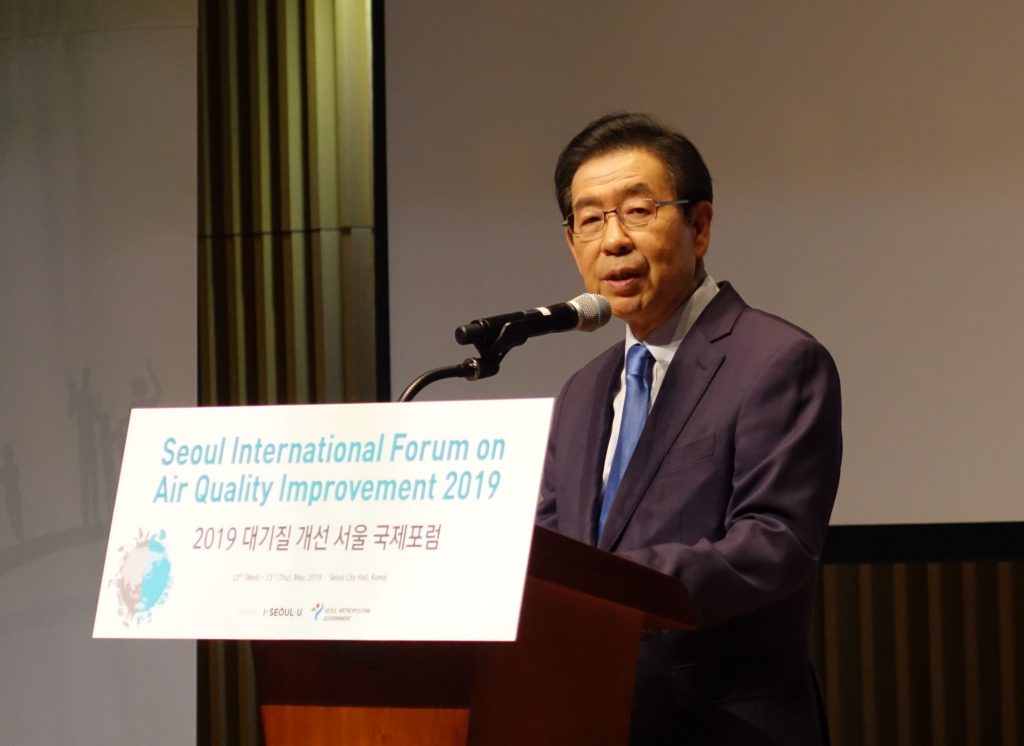
Seoul Mayor Park Won-soon
Dr. Isabel Louis, Deputy Director of UN Environment Asia and the Pacific, explained the health and economic impacts of air pollution in her keynote speech. “Air pollution costs human lives, reduces people’s ability to work, and contributes to welfare losses,” said Louis, “it also damages infrastructure, reduces the ability of ecosystems to function, and increases the costs for remediation and restoration of healthcare.”
“Air pollution does not stop at national borders,” she added, “transboundary flows of pollutants occur between close neighbors, as well as between continents.”
“ICLEI, C40, and the Global Covenant of Mayors are good examples of cities coming together to take joint actions on air pollution and climate change,” said Louis as she highlighted the importance of mobilizing clean air measures and innovative technologies through partnerships and cooperation, in accelerating positive changes in the region.

Dr. Isabel Louis, Deputy Director of UN Environment Asia and the Pacific
On this occasion, Louis also encouraged the participants to have a look at the report “A Review of 20 Years’ Air Pollution Control in Beijing” jointly launched by UN Environment and the Beijing Bureau of Ecology and Environment earlier this year, to learn from the city’s experience and solutions in controlling multiple pollutants.
Professor Ahn Byong-ok, Chairperson of the Executive Committee of the National Council on Climate and Air Quality, Korea, highlighted the importance of integrating air quality and climate change policies, as the two topics are closely related both regarding their sources, and their impacts on human health and ecosystems.
Ahn further reminded the participants that it is important to take joint consideration and adopt a more integrated approach to monitoring assessment systems and institutional capacities, so as to maximize the co-benefits of air quality and climate actions and minimize unintended consequences.
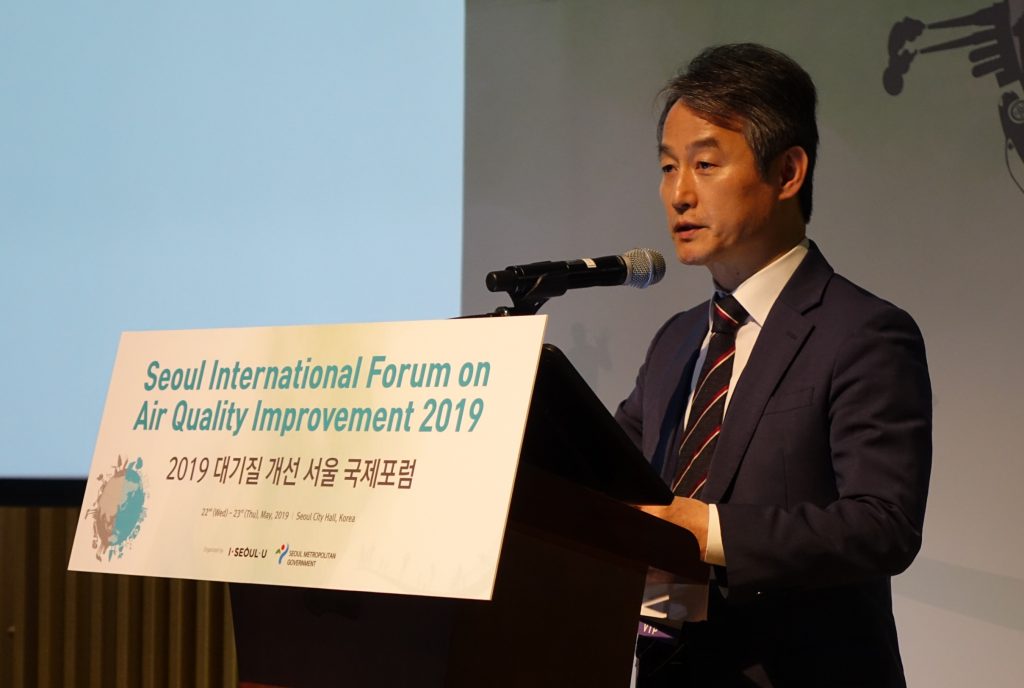
Professor Ahn Byong-ok, Chairperson of the Executive Committee of the National Council on Climate and Air Quality, Korea
The 2-day forum was divided into 5 sessions. Topics of Vehicle Emission Reduction Policies, Stationary Emissions Reduction Policies, and Urban Forest for Clean Air were covered on the first day, with specialists and representatives from East Asian cities invited to share their experiences in relevant fields.


